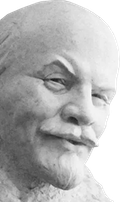80
Zohran Mamdani: A Rabbi Explained To Me Why "Globalize The Intifada" Makes Her Think Of Bombings
(www.realclearpolitics.com)
Welcome to c/electoralism! politics isn't just about voting or running for office, but this community is.
Please read the Chapo Code of Conduct and remember...we're all comrades here.
Shitposting in other comms please!
There is functionally no such thing as "hiding your power level" in the sense of secretly being more left. If you're "hiding your power level" it's because you're a rightist, and the phrase is exclusively used by baby leftists as cope.
If you're not creating the conditions for people more radical than yourself (e.g. by playing word police on radical slogans) then you're not a communist who's in deep cover waiting for the time to strike, you're just another liberal delaying the time to strike.
"There is functionally no such thing as "hiding your power level". Yeah this isn't a Dragonball episode
as a politician sure but this does actually apply for hasan piker (calling DPRK best korea in a video with boy boy ,saying Mao liberated Tibet)
I really meant in terms of politicians and such. That said, I've spent an embarrassing amount of time listening to Hasan and I think he is basically as he represents himself with the one exception of de-emphasizing his belief in the necessity of violence because of TOS. Well, perhaps he realizes in some arguments that he is wrong slightly more often than he is willing to admit because he's also extremely stubborn, but it's hard to tell where that would leave him overall.
Mao liberating Tibet is something even the vast majority of revisionists agree with and "best Korea" has several points to consider: first, it's a meme; second, when there's only one other Korea and that Korea is the RoK, it's a really low bar to be "best Korea;" three, any decent Marxist who is interested in geopolitics should be able to tell you that the DPRK is not Marxist or even really socialist, so overstated support for it isn't selecting as strongly for being a Marxist as Hexbear would have you believe, even if the DPRK is unquestionably a historically progressive force and it would benefit the world for it to triumph over the foreign occupation dominating half of Korea.
Yeah this is some very niche take. Is any country at all Marxist or socialist then?
I think you can define socialist in a pretty generous way (like "professes to seek the eventual end of class society") and that would include, to the best of my knowledge, every ""AES"" state except for the DPRK. The DPRK does not even meet that incredibly low bar; see the article I linked, where they are quoted as being against even the eventual destruction of the national bourgeoisie.
It is a fantasy that the DPRK is more socialist than Cuba, a fantasy that I struggle to imagine the basis of except that it has the most Soviet aesthetic and is the most openly hostile to America and friends. I strongly encourage you to read the article, ignoring Bland's Hoxha-philia because I don't think that aspect is very productive, but it's also not very relevant to the main content of the essay.
the essay identifies some cringe statements but fails to situate any of the rhetoric and policies within the DPRK's overall economy and context. acclaiming khrushchev is just a given when the USSR was rebuilding their country, special economic zones and other compromises in the 90s are because of the USSR's disintegration.
but it's very hard to judge these and tge involvement/existence of national bourgeoisie without real economic data about the proportion these aspects constitute in the overall picture
While I don't like the Khruschevite stuff, it really isn't the point of my bringing up the article and neither is the SEZ stuff, which I'm obviously aware Hexbear is supportive of. My personal concern is with their thorough denouncement of Marxism point by point and even in name itself, as well as, it must be stressed, their explicit support for an indefinitely perpetuated capitalist class. It's not like these things were needed for them to stay on China's good side or could remotely help them get off the west's bad side, and these things have remained for decades.
If you want "grounding in the DPRK's context," I can point to stuff that Bland interestingly chooses not to discuss like the Supreme People's Assembly being a 687-person rubber stamp for virtually its entire history. There must be a line somewhere where one must admit that a "socialist" state has gone from "making compromises" to "being compromised".
I apologize that I don't have spreadsheets on the DPRK's economic functioning and probably wouldn't be qualified to interpret them even if I did, but I think even just the exercise of trying to have a standard of evaluation rather than producing post-facto excuses could be helpful.
I've never encountered people being able to respond to these things with something higher than handwaving, and the mods can probably tell you at this point that I complain about it constantly.
i'm not trying to handwave but analysis requires hard material data, not just flowery language from statesmen. like the "non-violent" resolution of class divides is the most paragraphs ever. it's like basing an analysis of the USSR on their constitution
paragraphs ever. it's like basing an analysis of the USSR on their constitution
First, I never said that one country is more socialist than other. Second, I have read the article you’ve linked and I don’t agree with the authors stances on revisionism. To me it just seems like purity testing.
To ask "if x country isn't socialist, is any country socialist?" suggests that x country is an especially solid example. This isn't literally absolutely necessary to ask the question, but it becomes a strange thing to ask with no further explanation for why such a question is even relevant if this implication isn't being carried. More importantly:
I don't understand how you can take it as "purity testing" to criticize the DPRK for openly opposing anti-capitalism and the notion of classless society on even the most basic theoretical level. What do you even mean when you say "socialism" if this is socialism? If the DPRK is socialist for any reason other than using the word "socialist" to describe itself, then fucking Bismark was at least as much of a socialist (and he wasn't one), and if you were to call them Marxist, they themselves would disagree with you because it's a core rhetorical element of their state ideology that they aren't.
Furthermore, if Marxism has any specific value, revisionism is the undermining of that value, though I guess I could say that I disagree with Bland's stance on revisionism because I think he quite firmly establishes ample evidence that the DPRK is not even revisionist but instead just not Marxist or socialist at all, which is not the stance Bland takes in the article. You have seen for yourself how KIS and KJI took pains to refute almost every idea of Marx that was available to them, typically with extremely frivolous reasoning in support of completely ridiculous alternatives. What is left?
Tangentially, I do think Bland's a little harder on the co-operatives than I probably would be, but I've also struggled to find good information on them and I don't think it would really change my perspective much overall.
im sorry that i wasnt clear with that question. i wasnt trying to paint DPRK as a uniquely solid example or anything, but i was referring to the fact that DPRK, among Cuba, China etc., are considered socialist states by the vast majority of MLs.
on revisionism, i will not comment further on it because i don't want to get into the conversation on what is and what isn't socialism (it often ends with nothing really being socialism, since all socialist states had to give some concessions to capitalism etc.)
I gave you an extremely generous definition of socialism -- unreasonably so -- for the purpose of explaining that the DPRK still does not meet even that, and I mentioned Cuba before because I do think they're a Marxist state, something that the DPRK will explicitly tell anyone who listens that they are not!
AES includes China which collaborated with the West to build its economy and reversed the workers protections gained in Mao's era for neoliberal reform and a IMF export economy.
It also includes Vietnam, and both countries still have relations with Israel. China recently just raised the retirement age and wealth inequality has only grown. Cuba faces similar sanctions challenges the the DPRK and also allows for private industry for capitalists.
I think it's unhelpful to analyze Marxism in terms of publicly available political speech and not the actions and organization of the state itself. The issue is then that the DPRK isnt an open book when it comes to internal affairs outside of what's published in state media sources. Of course, thats also just due to the fact that imperialists would like to know exactly how the WPK operates just as we do.
The DPRK enshrines basic standards of living into its contitution: free education, schooling and healthcare (all not guaranteed under AES like China or Vietnam). The DPRK also practices collectivized agriculture. It establishes SEZs while also maintaining a socialist mode of production outside of it. Its foreign policy has consistently been left: supporting Russian SMO, never recognizing the Zionist occupation, breaking off relations with the ROK. Just this year, a resort for domestic tourists was built and the government is focusing on building housing in Pyongyang. The DPRK's military support for Russian SMO has also broken the liberal sanctions barrier with its historic ally.
If a national bourgeois did exist in NK, then why would they ever choose to play pretend socialism when they could easily join their international class at any point (multiple points, such as the famine in the 90s, nuclear deals with Clinton, etc)? While I don't argue that this class definitely does not exist and that there isnt an urban rural split/ Pyongyang class elite, rejecting the AES term for NK on the basis of criticizing Juche's idealist framing isnt a complete analysis.
I'd like to read more analysis of the DPRK based on the affairs of the country that we do know rather than the published writings of its leaders.
I think leftists running for office could hide their power level, but don't and instead back down in favor of acquiring powerful friends in the legislature. The prospect is just too tempting, AOC and Bernie and the democratic party machine being on your side and all you have to do is play ball.
I won't pretend that I completely understand it, but there seems to be a real systematic element preventing it from happening. If you pivot right, you may lose popular will but you will get corporate backing because it makes sense that you'd be bought off. If you pivot left, you lose corporate backing, but why should the people trust someone who has either been a reactionary up until just now or lying to them this whole time?
And it makes sense in the respect that "hiding your power level" is fundamentally anti-democratic because you are subverting democratic choice by misleading the public about what it would mean to choose you. Turns out that tends to sit better with rightists for some reason . . .
That's a great point, leftist or at least center-left policies tend to be more popular than right wing ones so hiding power level is more beneficial to the right. And you're not going to hide your secret leftist views from the corporate interests so being shifty on the left only makes it look like your hiding something from the public.